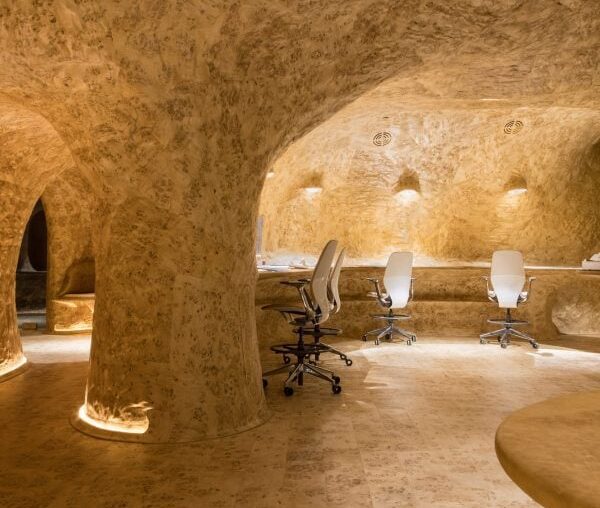Architecture studio Javier Senosiain Arquitectos has created a wood-lined office space in Mexico City informed by an “animal’s refuge” and other cave-like spaces.
The 202-square-metre office was designed to be “adapted to the human being” and consists of several main cave-like chambers linked by curving pathways.
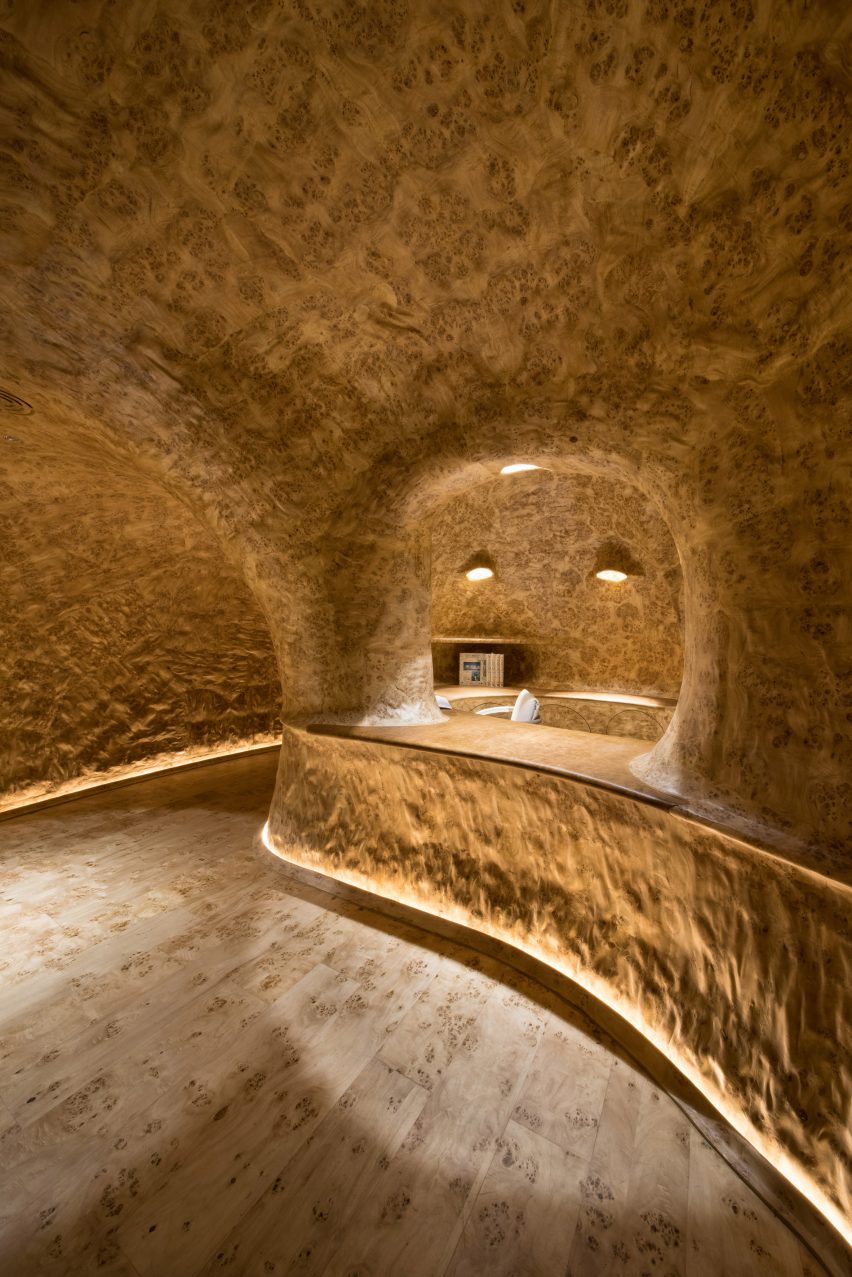
It serves as a Mexico City office for Javier Senosiain Arquitectos, an architect and office known for its organic architecture.
“The main idea [was] to achieve adapted spaces to the human body: similar to [the] maternal cloister, animal’s refuge, the troglodytes that are sculpted under the ground, the igloo – not a turn back but a meditated reconciliation,” said Javier Senosiain Arquitectos founder Javier Senosiain.
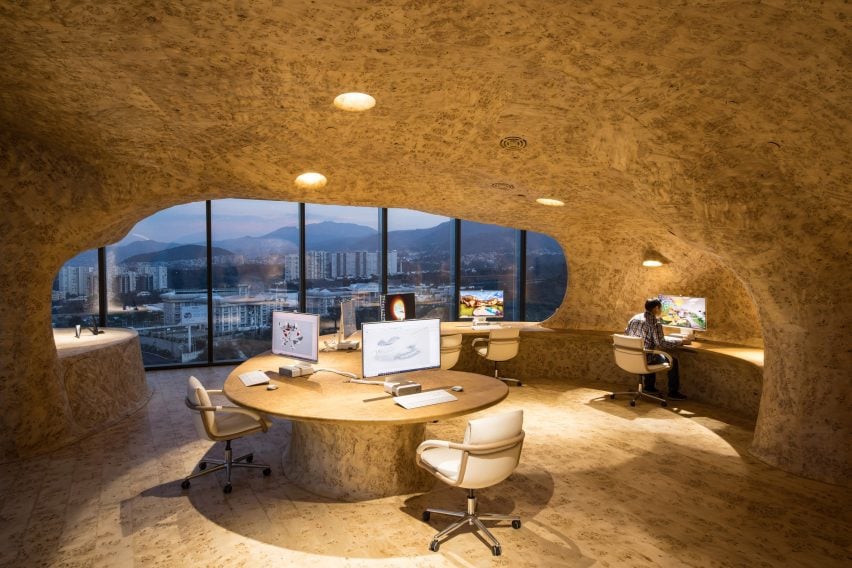
The space spreads out over one level of a wedge-shaped shared office building and contains a terrace on one side.
Visitors enter through the main door, which opens onto a waiting area with a reception desk that leads into a curving hallway.
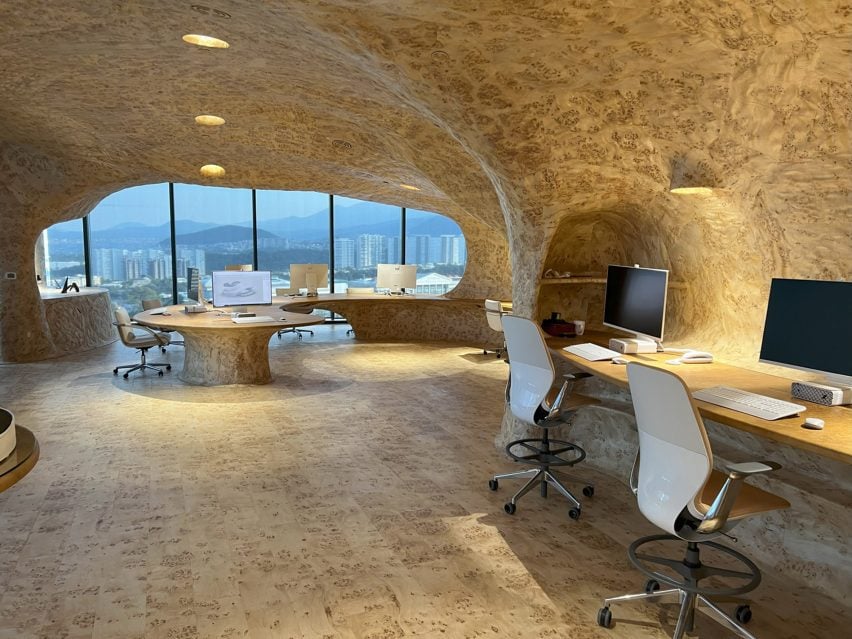
This main hall branches off into a large work area, which contains two large snaking desks that look out over the terrace. On the other side, the main hall leads into a kitchenette, a material library and two enclosed offices.
The larger of the two offices contains a circular meeting area with curved benches. Past it is another curvilinear desk and a wall of floor-to-ceiling windows.
Each space is enclosed with overhanging, curved ceilings and walls clad in a marble-like maple root veneer, also used for the floor.
Organically shaped columns, shelving and light pendants were distributed throughout the space, while ground-level lighting runs along the perimeter.
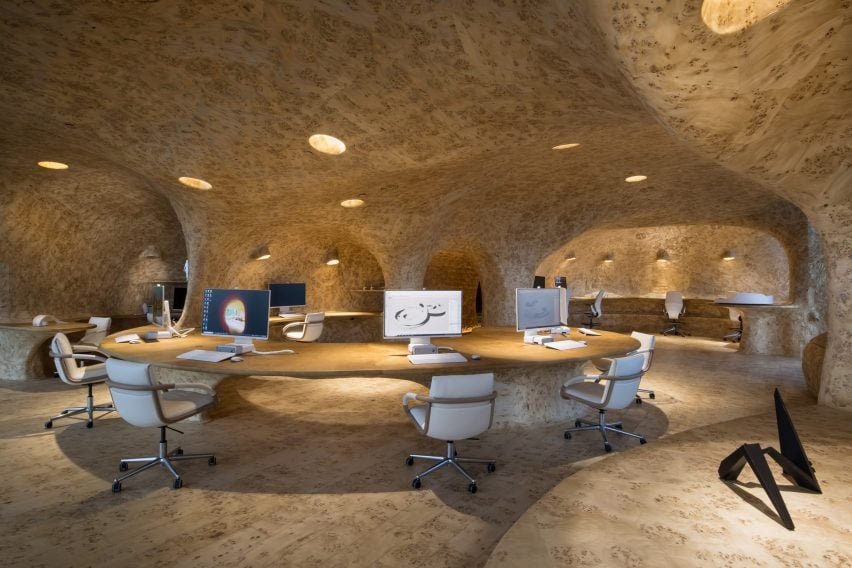
The space was previously a “rectangular prism”, which the studio converted by creating wooden framing in the space and then covering it with “thin strings of wood”.
According to the studio, the use of wood versus prefabricated or synthetic materials reduced the project’s environmental impact.
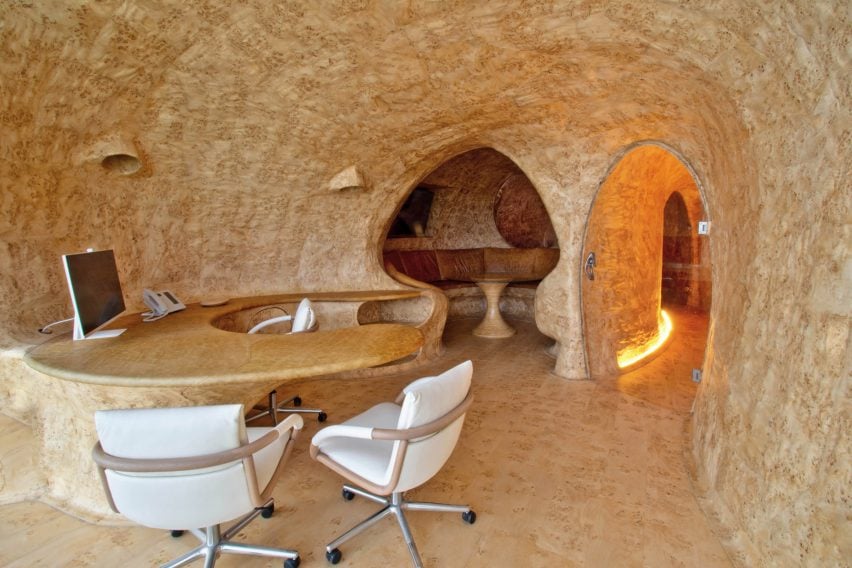
“The project is made out of wood in its structure and finishing; this wood certifies the planification and the legal felling of trees,” said the studio.
“With this in mind, it also guaranteed a lower environmental impact, compared to the energy and resources used in prefabricated materials.”
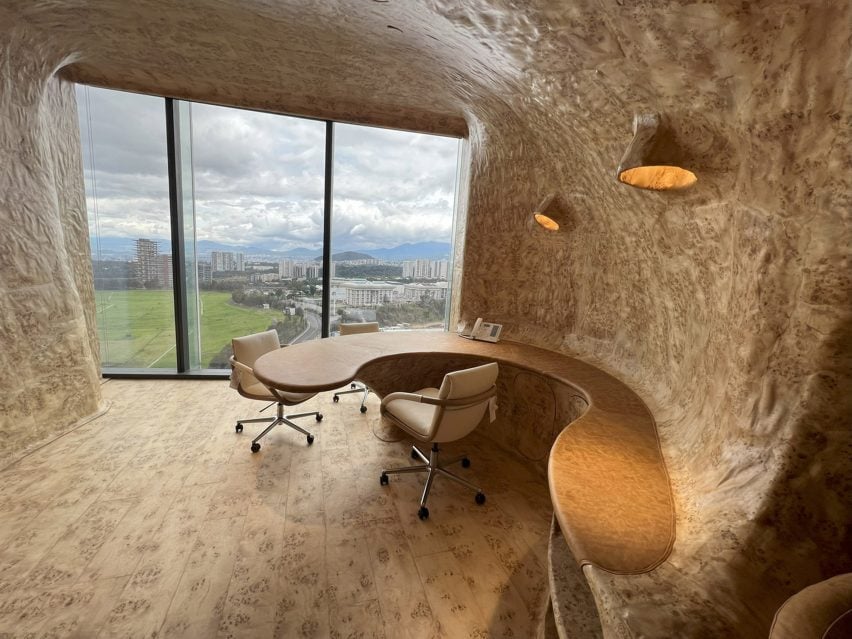
Leather was used to cover the desks and other surfaces to create a “soft” working space.
“[Living] together in the workshop is like working in a warm and illuminated cave, with stimulating sensations that change from one space to another, an interplay of lights that change throughout the day,” said the studio.
This project has been shortlisted in the Workplace interior category of Dezeen Awards 2024. Other projects shortlisted in this category include Land Over Water Office by Firm Architects and Link Lab Creative Offices by Stay Studio.
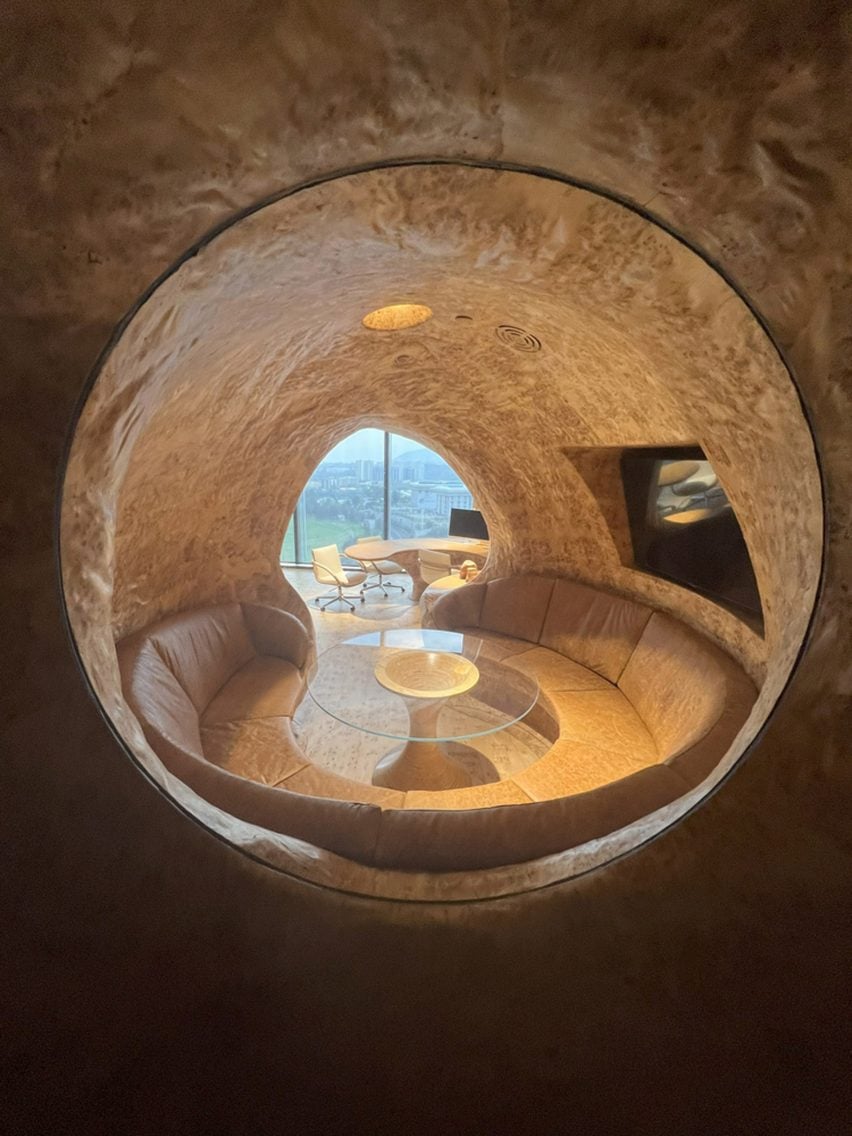
Recently, Latvian photographer Anna Dave released images of the studio’s snake-shaped aparment complex outside of Mexico City.
The photography is courtesy of Javier Senosiain Arquitectos unless otherwise stated
